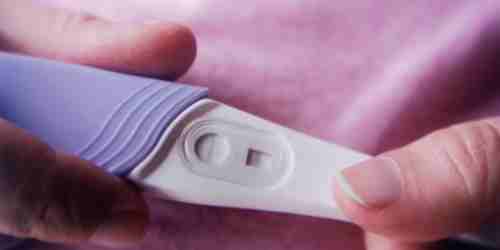Implantation bleeding can be described as a tiny amount of bleeding or spotting that is light. It is usually seen 10-14 days after the conception. Implantation bleeding is quite common and is usually not a sign of a severe issue.
Implantation bleeding is believed to be caused by fertilized eggs that can attach to the inside of the uterus. Implantation bleeding typically occurs at the same time that you anticipate to be having menstrual periods. But it is less intense than menstrual bleeding.
Some people don’t notice bleeding from implantation, and some don’t observe it. In some cases, bleeding from implantation can be misinterpreted as a light period. If this occurs, you should know what you’re expecting. This can result in mistakes in determining the due date for your baby. A fetal ultrasound, usually performed during the first trimester of pregnancy, will help select your baby’s due date.
The bleeding from an implant is minimal, stops by itself, and does not require any treatment. If you’re concerned about vaginal bleeding that occurs during pregnancy, speak to your healthcare provider.
Overview
What is the cause of implantation bleeding?
Implantation bleeding happens when fertilized eggs are implanted in the inner lining of the uterus (endometrium) when you are pregnant. After fertilization by sperm, the embryo is referred to as an embryo. The embryo is transported through the fallopian tubes and into your uterus. When you reach this stage in your menstrual cycle, your endometrium has a thick and vascular structure. This is the perfect place for your embryo to connect and grow. Implantation could cause damage to the blood vessels within the inside of your uterus, which is what you see when there is a bleed during the implantation.
It’s not common for everyone to suffer from bleeding from implantation. It’s a normal part of pregnancy and isn’t generally an issue to be concerned about.
How quickly does bleeding from implantation occur?
The signs of a bleeding implant are often mistaken for menstrual bleeding. It could happen at the time your period was scheduled to be due. The exact timing varies; however, most implantation bleeding occurs between six and 12 hours after fertilizing your egg. Most of the time, women don’t have the pregnancy test yet and don’t even know they’re pregnant.
How common is bleeding during implantation?
Around 25% of pregnant women have bleeding during implantation. It’s regarded as a regular aspect of pregnancy.
How much blood do you lose during the implantation?
Implantation bleeding is thin. This is known as the spotting. Specific individuals will experience bleeding from implantation over several days, while others only have one bleeding. You’ll usually notice it as a small spot on one of your pants or toilet paper after wiping. It’s not typical for implantation and could indicate an underlying problem.
5 Things to Know About Implantation Bleeding & Early Pregnancy
A lot of people think that they are the absence of their period is one of the primary indicators of early pregnancy. You may be shocked to discover that a small amount of blood or cramping – also known as implantation bleeding- can indicate pregnancy, as the fertilized egg binds in the uterine lining before the nine-month journey commences.

Here are five things that you must be aware of regarding implantation bleeding and how to determine whether it is an indication of pregnancy or your coming period.
- What is Implantation Cramping & Bleeding?
The symptoms of implantation cramping and bleeding aren’t the same thing as menstrual cramps or bleeding. However, since implantation spotting usually occurs at the same time you anticipate your period to begin, it can be challenging to determine which kind of bleeding and cramping you’re experiencing.
Each month, the lining of the uterus gets a lot of blood in preparation for the possibility of fertilizing eggs. If there is no implanted egg in the lining of your uterus, it will shed during your period. If an egg is implanted, it is physically incorporated into the uterine lining. There may be cramps and spots that appear. Be normal if it happens.
This lower volume of blood and less cramping could be one of the first indications that you’re pregnant. It is difficult to determine if it’s implantation bleeding or just the beginning of your period (especially when your menstrual flow is thin); therefore, the pregnancy test will let you determine.
- When Does Implantation Bleeding Occur?
Implantation bleeding – when it occurs, usually happens between 9 and 12 days following conception when the fertilized egg implanted or binds itself to the uterus’s lining. It can take as little as six days for the egg to travel out of the Fallopian tubes or as long as 14 days. The typical being nine days.
If you’re trying to determine the date of implantation and when it occurred, knowing the date you had your first ovulation and when your last period started is the most accurate information. Ovulation usually occurs 12-14 days following the first date of the previous period, and implantation takes 6-12 days following ovulation if the egg has been fertilized.
Don’t be concerned if you don’t have any bleeding during implantation. In reality, the majority of women who are pregnant (about 70-75 percent) don’t experience any signs of implantation. This means that about 25-30% of women suffer from implantation bleeding. We’ve been trained to think that any bleeding in the hope of becoming pregnant could be a sign of a miscarriage. But it’s not as simple as that.
- What Does Implantation Bleeding Look Like
While you may be accustomed to bleeding once a month, Implant bleeding, also known as implant spotting, is usually like your regular bleeding during your period.
When implantation occurs, a small part of the uterine lining may be disturbed or displaced, which can cause a small amount of bleeding. Menstrual cycles cause the uterus to expand to release the entire lining of the uterus, which causes more bleeding and continues until the whole lining is removed.
Implantation Bleeding vs Period Bleeding
Cramps and bleeding during implantation could easily be misinterpreted as the start of your cycle; however, what’s happening inside your body is entirely different. There are differences between implant bleeding and bleeding during the period in the sense of flow, the duration of bleeding discomfort, and the hue of blood.
- How Long Does Implantation Bleeding Last?
Most people don’t suffer from implantation bleeding. However, those who do might experience spots for a couple of hours or days. Bleeding that’s not your period but persists for more than a couple of days or is more intense than spotting is an excellent reason to consult your doctor.
- What Are Some Symptoms of Implantation & Early Pregnancy?
Each person is unique. However, many people report the sensation that comes with implantation, such as slight tension, tingling, or pull within the uterus. Mild discomfort and a bloody or brownish discharge are common signs – when you experience bleeding from implantation in any way.
The signs of implantation cramps and bleeding are like those of a light cycle. It is possible to test for pregnancy to determine whether you’re pregnant. You should also be aware of other signs that indicate pregnancy:
- fatigue
- Swollen, tender, larger or more full breasts
- nausea or vomiting
- Food aversions, cravings, or food aversions
- Smells more pronounced
- mood swings, feeling tearful or easily disturbed
- headaches
- constipation
- faintness or dizziness
- increased body temperature
- Incomplete time
It is recommended to consult your physician or other medical professional for any signs or health issues.
How can your doctor determine what’s wrong?
A doctor can ask you questions regarding your medical background to determine the most appropriate option for treatment.

Your physician may suggest blood tests, like the type of your blood and Rhesus (Rh) component, to determine if you require Rho(D) immune globulin from a trusted source. It is an injection that is given to people who are Rh-negative regularly during the period between 28 and 27 weeks and then again after 72 hours after delivery. Also, it is given to women who suffer from bleeding during pregnancy. If you need more clarification about your blood type, consult your physician.
Although not every bleeding is an emergency, an indication of a problem, Your doctor may need to conduct tests, like an ultrasound of your vagina, to determine if you’re pregnant and to confirm that the fertilized egg has been implanted within the uterus and isn’t ectopic.
Takeaway
Implantation bleeding happens when an egg that has been fertilized (zygote) connects to the uterine lining. It is often confused with normal menstrual flow due to the symptoms it triggers and the timing it usually occurs. However, the bleeding during implantation is usually significantly lighter and shorter than regular periods.
While implantation bleeding isn’t usually a cause for concern, however, it is advisable to consult your doctor if you notice symptoms such as:
- persistent bleeding
- Vaginal blood clots, bleeding that soaks an area every 30 minutes
- tiredness
- dizziness
- Pain
Your doctor will help you determine the root of your symptoms and decide if the treatment is needed.